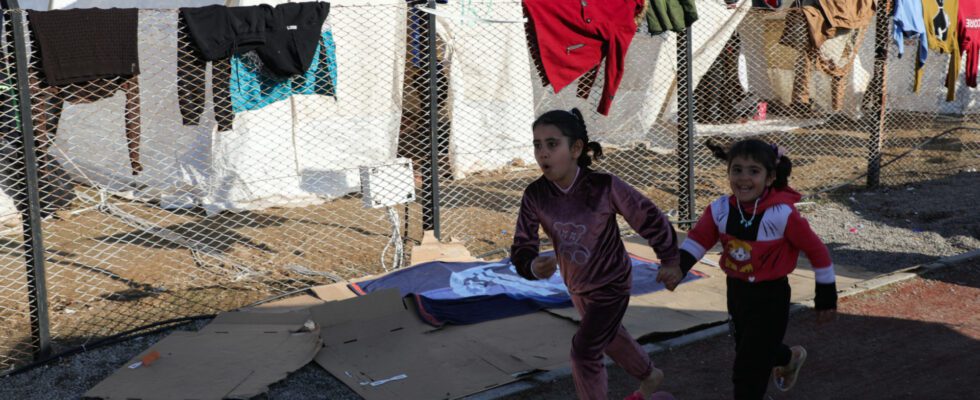Wilfried Devillers (in Nurdagi)
More than ten days after the earthquake in Turkey and Syria, more than 7 million children find themselves in great difficulty according to Unicef. Among them, many are now homeless, deprived of access to education, water and electricity. Many live in makeshift camps. Europe 1 went to Nurdagi.
Since the earthquake that hit Turkey and Syria ten days ago, many children have been living in makeshift camps with their families. In the Gaziantep region in southern Turkey, 3,000 have been counted. To provide them with material and psychological support, psychosocial cells have been set up. Europe 1 visited that of Nurdagi.
“They are children, all they want is to play”
In this survivors’ camp, a large yellow tent contrasts with the other emergency shelters set up. Inside, dozens of children playing, drawing. An essential space, according to Serkan, psychologist. “They are children… All they want is to play and have fun. They need to play. At first they were scared. Now they feel much better.”
Psychosocial cells, beneficial spaces for families
Children who need to forget the catastrophe. Like this little girl who recounts the earthquake: “We left the house but I don’t know where my sisters are, they disappeared… Since then, I haven’t felt anything, I’m lost.” Dylara takes her hand to take her to play. The psychotherapist also talks about the benefits of such a space for families. “Many families have found their smiles again. There are parents who bring their children back to have their children put on makeup. They want to encourage the children to play. They even participate in the activities too,” she explains.
A young girl runs after her brother, a doll in her hand, and disappears behind a tent, laughing.
